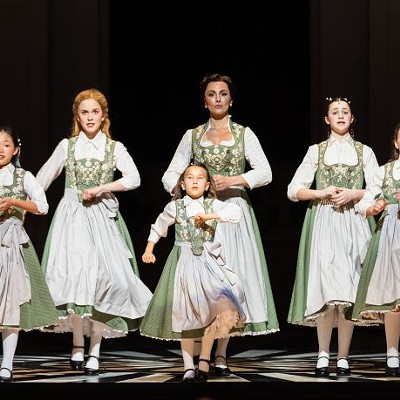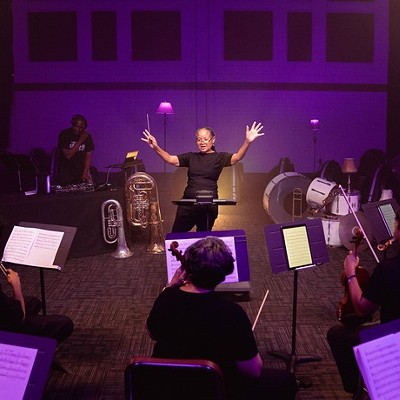Support Us
Houston's independent source of
local news and culture
account
- Welcome,
Insider - Login
- My Account
- My Newsletters
- Contribute
- Contact Us
- Sign out
[
{
"name": "Related Stories / Support Us Combo",
"component": "11591218",
"insertPoint": "4",
"requiredCountToDisplay": "4"
},{
"name": "Air - Billboard - Inline Content",
"component": "11591214",
"insertPoint": "2/3",
"requiredCountToDisplay": "7"
},{
"name": "R1 - Beta - Mobile Only",
"component": "12287027",
"insertPoint": "8",
"requiredCountToDisplay": "8"
},{
"name": "Air - MediumRectangle - Inline Content - Mobile Display Size 2",
"component": "11591215",
"insertPoint": "12",
"requiredCountToDisplay": "12"
},{
"name": "Air - MediumRectangle - Inline Content - Mobile Display Size 2",
"component": "11591215",
"insertPoint": "4th",
"startingPoint": "16",
"requiredCountToDisplay": "12"
}
,{
"name": "RevContent - In Article",
"component": "12527128",
"insertPoint": "3/5",
"requiredCountToDisplay": "5"
}
]
The 1980s is often looked back upon with nostalgia, and for some people it's probably hard to remember just how tumultuous a decade it was. As an adolescent growing up during the decade of big shoulder pads and even bigger hairstyles, I remember how tense the '80s were. Young people at the time were coming of age during an era where sex could result in contracting an incurable and fatal disease, along with the stress of the ongoing Cold War, where TV movies like "The Day After" would helpfully remind us that our world could evaporate in a fiery flash of exploding Russian atom bombs. It's no wonder that, like teens of previous generations, many of us tried to escape through rock music, but there were forces at work attempting to change how we were able to do that.
The 1980s was, among other things, a decade of emerging social conservatism, perhaps in reaction to a perception by many people that things had swung too far in the other direction during the late 1960s and 1970s. Ronald Reagan was in office, Christian Conservatives like Jerry Fallwell's Moral Majority had risen to power, there was an ongoing witch hunt in the form of the Satanic Panic, and basically the 1980s seemed to be a time where powerful social forces were trying to push back against stuff they just didn't like.
Rock music has been blamed for the moral decay of young people since its very beginning, with parents and various authorities fearing that listening to rock and roll might cause white kids to explore black music and the perceived dangers that entailed, or might literally damn themselves for all time, because God might not tolerate someone listening to Buddy Holly. Looking back on those early protests against rock and roll, it's easy to see that some adults have always been frightened by the things their kids find exciting. After all, listening to Elvis might have led kids to discover morality withering pastimes like playing pinball.
Of course, by the 1980s, popular music had changed a lot, and some artists did try to push the boundaries of lyrical content and image. Pissing off parents had long proven to be a sure way to sell records, and rock music had evolved to the point that it wasn't just for kids anyway. The mid '80s seemed to be a time when social conservatism gained particular strength at a governmental level, and in 1985 a group of concerned women formed the Parents Music Resource Center, also known as the PMRC. These rock music hating folks were the wives of powerful politicians, giving their committee more clout than the average group of concerned citizens. Headed by Tipper Gore, the wife of then-Senator Al Gore, and also other powerful Washington wives, the PMRC was very worried that rock music had gotten too out of hand, and would lead to the type of moral decay previous generations might have blamed on horror comics.
The PMRC issued a list of "suggestions," including the voluntary formation of a ratings system by the recording industry. While many would think that such a ratings system was reasonable, the PMRC had other suggestions which were not as easy to accept. Those included putting pressure on the radio and television stations to not broadcast explicit songs, making record stores sell albums with graphic covers under the counter, and pressuring record companies to reassess the contracts of artists who performed live with any sexual or violent content as part of their show. Powerful retail scaredy-cats like Sears and Walmart reacted predictably by not allowing certain rock music to be sold at their stores.
Along with their suggestions, the PMRC released a list of songs that earned the title of the "Filthy Fifteen," which included entries from artists as diverse as Cyndi Lauper, whose tune "She Bop" the committee maintained was about masturbation, and metal band Venom, whose song "Possessed" made the list for having occult content. In September of 1985, the PMRC had their moment in the spotlight, when the Senate agreed to have a hearing on what they were calling "Porn Rock." The ensuing event was ridiculed by rock fans as very earnest PMRC members went head to head against rock musicians including Dee Snider from Twisted Sister and Frank Zappa. They were joined by John Denver, whose folk rock song "Rocky Mountain High" had been misinterpreted as a pro-drug song, leaving him with a distrust of musical censorship efforts.Dee Snider also maintained that his band's music had been misinterpreted and made an argument that, as a father, he felt that only his wife and he were qualified to make musical decisions for his children, believing the same was true for other parents. Frank Zappa, being the awesome individual that he was, argued eloquently that the PMRC's proposals were badly conceived and would not benefit children, but instead just harm adults who liked rock music.
In November of 1985, the record industry agreed to put generic warning labels on albums containing material that might be objectionable to some. Albums with the "Tipper Stickers" weren't carried in certain big chains like Walmart, but also resulted in letting kids know which albums contained the kind of stuff that might worry their parents - a worthwhile goal to many teenagers. Many musical artists ridiculed the PMRC and their nanny sticker, and music continued to get produced and sold that the committee would've preferred disappear.
Looking back at the list of suggestions the PMRC had made, it's hard to imagine how anyone with a love of free speech or music could have embraced such an agenda. I've heard people argue that "A rating system isn't a bad idea," and perhaps that could be true, if the rating system being suggested didn't include warnings of "occult content" and other weirdly subjective judgments. Asking record companies to reassess the contracts of certain objectionable artists is pretty troubling as well. Popular music is a form of art, or can be, and pushing boundaries is part of what good art sometimes does. In the long run, parents that object to their kids listening to certain material, can do what parents have always done, actually listen to the music they're worried about, and make a decision for themselves. Did anyone really want Tipper Gore and her cronies making those choices for them?
The 1980s were an interesting decade for many reasons, but it was definitely an era where social conservatives and alarmist groups who thought certain art, music, and film were dangerous to young minds had more power than they probably should have been allowed. The PMRC really accomplished little of lasting importance, but they provide a cautionary example of why it's a terrible idea to allow moral watchdogs to act from a position of authority when it comes to artistic content or music.
KEEP THE HOUSTON PRESS FREE...
Since we started the Houston Press, it has been defined as the free, independent voice of Houston, and we'd like to keep it that way. With local media under siege, it's more important than ever for us to rally support behind funding our local journalism. You can help by participating in our "I Support" program, allowing us to keep offering readers access to our incisive coverage of local news, food and culture with no paywalls.
Trending Arts & Culture
- Bring a Friend With You to See A.D. Players' Heartwarming Production of Driving Miss Daisy.
- Reviews For The Easily Distracted:
Boy Kills World - Houston Chamber Choir Brings California Gold To Texas
-
Sponsored Content From: [%sponsoredBy%]
[%title%]

Don't Miss Out
SIGN UP for the latest
arts & culture
news, free stuff and more!
Become a member to support the independent voice of Houston
and help keep the future of the Houston Press FREE
Use of this website constitutes acceptance of our
terms of use,
our cookies policy, and our
privacy policy
The Houston Press may earn a portion of sales from products & services purchased through links on our site from our
affiliate partners.
©2024
Houston Press, LP. All rights reserved.




